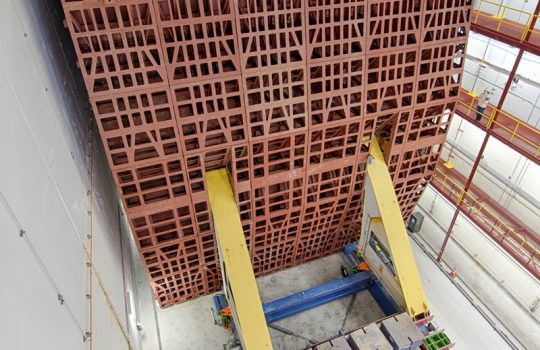NOvA turns its eyes to the skies
The NOvA experiment, best known for its measurements of neutrino oscillations using particle beams from Fermilab accelerators, has been turning its attention to measurements of cosmic phenomena. In a series of results, NOvA reports on neutrinos from supernovae, gravitational-wave events from black hole mergers, muons from cosmic rays, and its search for the elusive monopole.



